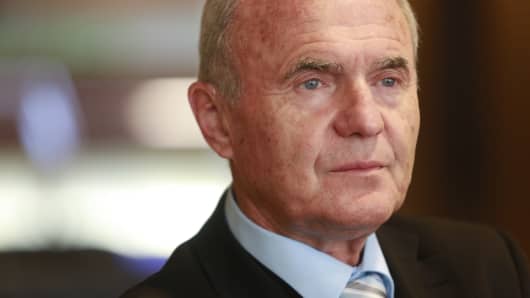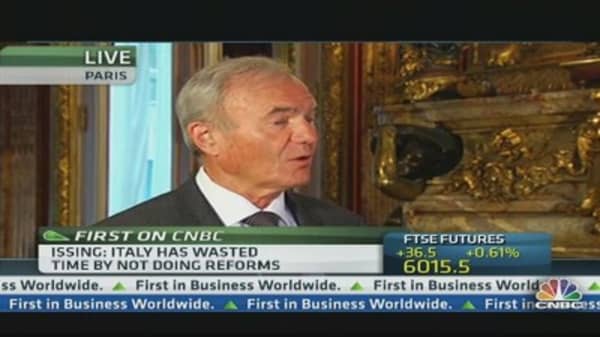The euro zone has squandered precious time in making reforms during a time of central bank support for the economy, the president of the Center for Financial Studies, Otmar Issing, told CNBC on Tuesday.
"In some countries time was really wasted," Issing, who is also the former chief economist at the European Central Bank (ECB) and one of the euro's architects, told CNBC on Monday.
"France is an example of that, the new government went in the wrong direction and now they had to move back and a lot of reforms have to be done. A scandalously high youth unemployment rate (26.5 percent for France in April) shows how much has to be done," Issing said.
(Read More: Banking Reform Deal Is in Sight, Says EU's Rehn)
Policy makers in Europe should "do their homework" and focus on unemployment in the euro zone, he said, saying the rising jobless rate was "another sign that time was wasted." "Voters voted for governments that promised to spend money but not those that promised reforms- this needs to change and it needs to change faster," he told CNBC in Paris where he is attending the Institute of International Finance's Spring meeting.
Italy also needed to step up the pace of reform.
On Monday, Italy's second biggest bank Mediobanca said its "index of solvency risk" for the country signaled that Italy would "inevitably" need to request an EU bailout within six months unless it can count on lower borrowing costs and a broader recovery.
In a private note seen by the U.K.'s Daily Telegraph newspaper, Mediobanca's top analyst Antonio Guglielmi said "time is running out fast" for the euro zone's third biggest economy. "The Italian macro situation has not improved over the last quarter, rather the contrary. Some 160 large corporates in Italy are now in special crisis administration."
(Read More: Is Italy on a Collision Course With Europe?)





